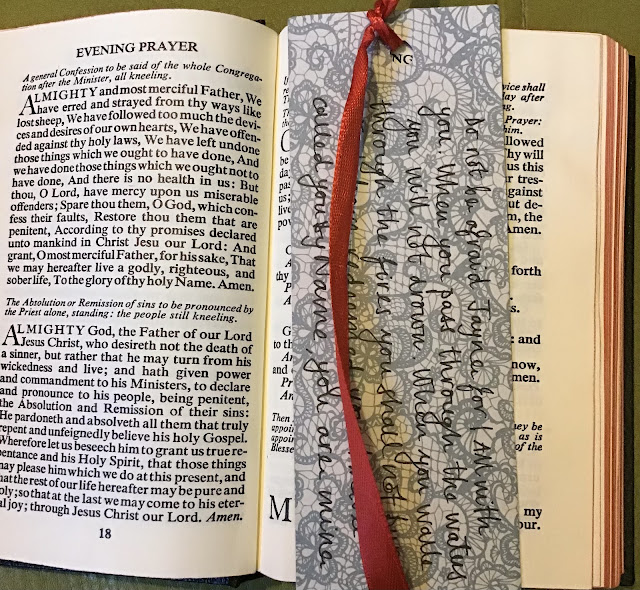A sermon about Black Lives Matter on Trinity Sunday.
2 Corinthians 13:11-13 (sermon given on June 7th 2020, Trinity 1.)
Preaching on Trinity Sunday is always a bit tricky because there’s a pressure to explain something that is mostly unexplainable. Like much of our Christian faith, The Trinity is mysterious and contentious and no one seems to agree on what it means.
This Trinity Sunday I find myself also searching for something meaningful to say about the shocking events of the past few weeks. The murder of George Floyd by police in America and the Black Lives Matter protests that have happened as a result. I’m a white woman talking to a white majority church. It’s difficult to know what the right words are at such a point in history. We might think that it’s not our business to say anything at all.
But being a Christian means not staying silent when we have a voice that we can raise against oppression, injustice, discrimination, and outright hate.
We are the body of Christ, and when one part of that body is suffering, the body suffers entire. When one section of humanity is persecuted, Christ is crucified anew.
St Paul, when he was still known as Saul; tyranniser of Jesus followers, was once asked by God: “Saul, Saul, why do you persecute me?”
Why do you persecute ME. Faced with the scourge of racism, millions of black people are asking the same thing.
It is Paul’s words we heard this morning, in our first reading, written to the early church in Corinth.
This church was a problem church. It was situated in a city that was a multicultural melting pot of races, ideologies, and backgrounds.
As a result, the Corinthians were struggling to love one another. Their many vices were jealousy, anger, selfishness, slander, gossip, conceit and disorder. In short, they were regular people. And despite their differences, they were still committed to learning what it means to be Christ’s body in the world.
Our reading today is Paul’s final letter to this church. He tells them to “Put things in order…agree with one another…live in peace.” Timely advice for the troubling times we find ourselves in right now.
Agreeing with one another doesn’t mean thinking in the same way. It’s not an appeal to uniformity. Paul knew full well that - like the world we inhabit today - Corinth was diverse and disparate and that was to be celebrated.
Agree with one another doesn’t mean think like each other, it means think like Jesus.
What does it mean to think like Jesus?
It means we don’t ignore people when we see they are hurting.
It means we listen instead of talking over.
It means we interrogate what it means to be a white person in a world set up to cater to whiteness.
It means that we don’t assume the white experience is the standard one just because it’s the dominant culture.
It means we don’t claim that we are colour blind or that we don’t see colour, because we need to see it. See it. Acknowledge it. Help dismantle the prejudice that is caused by it.
How on earth can we help make the world a safer, more accessible place for them, if we don’t even see the barriers that they face?
It’s hard to listen; to quell our own ideas and opinions and really listen. Paul knew this, that’s why he ended his letter with one of the most quoted passages in all of the New Testament. We know it as The Grace. We might say it at the end of PCC meetings, or at the close of bible study. It’s a beautiful way to remind ourselves that thinking like Jesus isn’t just something that we will ourselves to do.
We can only do it because of The Trinity. Through the grace given to us by JESUS. Through the love of GOD. Through the communion and fellowship of the HOLY SPIRIT. Grace – love – fellowship. Jesus – God – Spirit. One leading to another. None sufficient on their own. This is the Trinitarian promise for how peace will come to us all.
I pray we all experience the life-giving grace of Jesus and that this moves us to graciousness for others.
I pray we feel the full force of God’s all abiding and endless love, and that it fills us with such gratitude that it spills out onto all who encounter us.
I pray we enter fully into the fellowship of the Holy Spirit and that it empowers us to be a force for good in this world. That we step out in honesty and truth, acknowledging the ways we are complicit in a corrupted world and standing in unity with all our siblings.
I pray we put things in order. I pray we agree with one another. I pray we live in peace.
I end now with the words of poet Maya Angelou, taken from her poem Amazing Peace:
We, Angels and Mortal's, Believers and Non-Believers,
Look heavenward and speak the word aloud.
Peace. We look at our world and speak the word aloud.
Peace. We look at each other, then into ourselves
And we say without shyness or apology or hesitation.
Peace, My Brother.
Peace, My Sister.
Peace, My Soul.
Amen.




Comments
Post a Comment